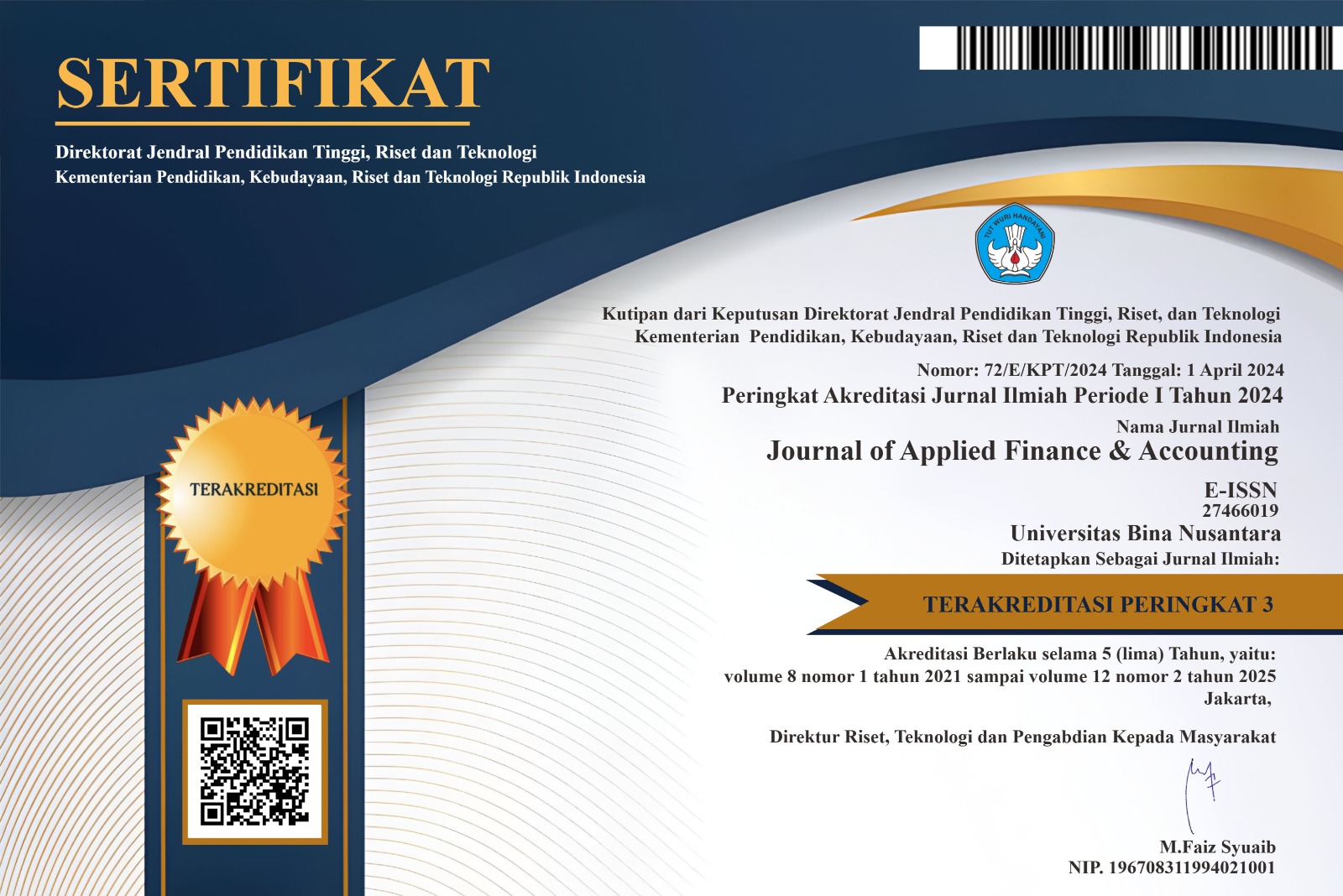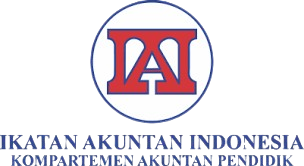EMPIRICAL INVESTIGATION OF ORGANIC GROWTH, EVIDENCE FROM INDONESIAN PUBLIC LISTED COMPANIES
DOI:
https://doi.org/10.21512/jafa.v2i2.158Keywords:
organic growth index, economic value added, core earnings, income manipulation.Abstract
The main objective of this research is to examine Indonesian public listed companies with earnings generated organically rather than through earnings management, income manipulation, financial engineering, or through mergers and acquisitions. 70 samples were taken from Kompas 100 Stock Index from the period of 2004 to 2007 excluding banks, financial institutions, REITs and insurance companies. The authors applied the model of Organic Growth Index (OGI), developed by Hess (2007). The OGI model designed to illuminate value-creating companies that have consistently outperformed industry competition through organic growth. The test begins by selecting the best Economic Value Added and high growth companies. The result of our study shows that there are 10 percent of Indonesian public listed companies identified as OGI winners. These companies passed the core earnings test, income manipulation test and cash realization test, and thus indicated that those Indonesian public companies have a low level of earnings manipulation and low engagement in non-core earnings such as hedging activities.
Downloads
Published
Issue
Section
License
Authors who publish with this journal agree to the following terms:
Authors retain copyright and grant the journal right of first publication with the work simultaneously licensed under a Creative Commons Attribution License that allows others to share the work with an acknowledgement of the work's authorship and initial publication in this journal.
Authors are able to enter into separate, additional contractual arrangements for the non-exclusive distribution of the journal's published version of the work (e.g., post it to an institutional repository or publish it in a book), with an acknowledgement of its initial publication in this journal.
Authors are permitted and encouraged to post their work online (e.g., in institutional repositories or on their website) prior to and during the submission process, as it can lead to productive exchanges, as well as earlier and greater citation of published work (See The Effect of Open Access).




